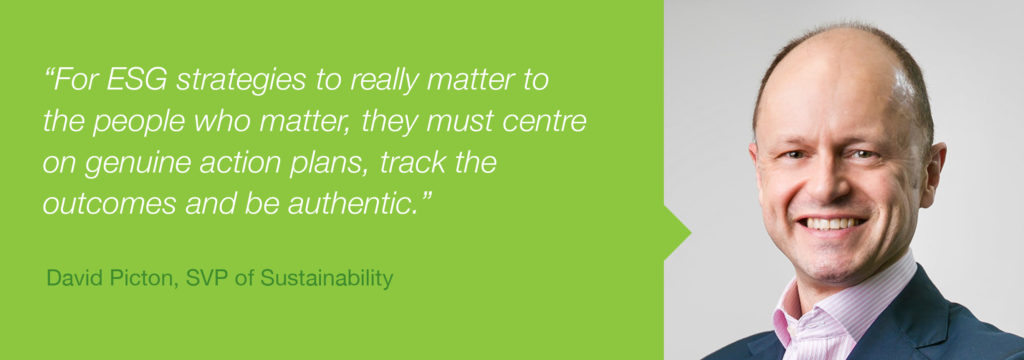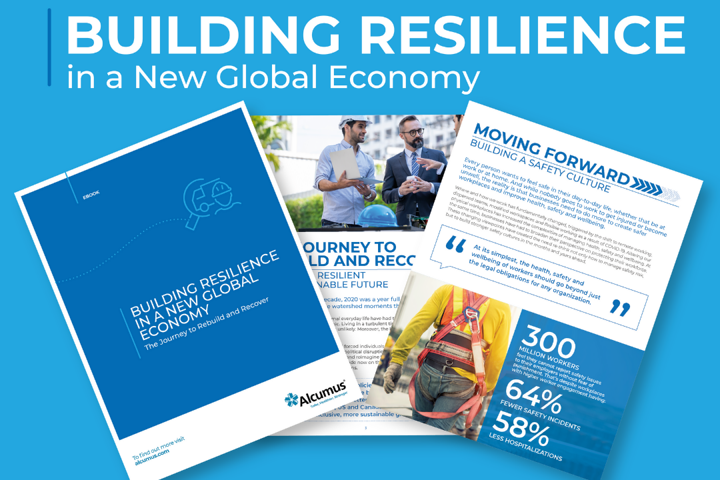
Why should you be Company of the Year at Global Good Awards? – David Picton, SVP of Sustainability
Not at all … for the most forward-thinking, well-organized, and ultimately most promising businesses, this is exactly the time that they are focusing on ESG and working hard to build back better. As the sub-skipper explains in the film, “you don't just get to fight battles when everything’s hunky-dory.”
ESG action is no longer a nice to have, but a must do for ambitious businesses
At Alcumus, our recent research and global client work shows that most businesses have seen a large or very large impact from ESG, and most expect this to increase still further over the next few years. In that spirit, we’re proud to be sponsoring the Company of the Year category in the 2022 Global Good Awards. The Global Good Awards, previously known as the National CSR awards, are all about recognizing businesses, NGOs, charities and social enterprises of all shapes and sizes around the world, who are driving social and environmental change.
Whilst there is little doubt that global trading conditions remain extremely tough, there are equally few doubts that customers, the public, investors, employees, and a wide range of social commentators have high expectations. These increasingly extend from areas like climate action and environmental impacts, through social value and on to areas of governance like ethics, forced labor, anti-bribery and cyber-security.
Last year’s COP26 Glasgow Climate Summit undoubtedly raised the emphasis on carbon reduction, but organizations with the most effective ESG strategies are embracing the 3 CBs. They are setting a Challenging Balance (across the 3 ESG pillars) that Changes Behaviors (across their teams) for Commercial Benefit (to their long-term success).
With an increasingly sharp eye on the potential for greenwashing, global customers and commentators expect proof, evidence, and independent third-party audit to back up ESG claims. Coherent data visibility is becoming the key antidote to that greenwashing risk, linking disparate operations across complex organizations and their supply chains. In parallel, it's not enough just to track reliable metrics either. For ESG strategies to really matter to the people who matter, they must centre on genuine action plans, track the outcomes and be authentic.

That realization is driving companies to move away from spreadsheets and manual calculations, and towards one true view of their ESG data through digitized technology platforms.
The ongoing disruption to international supply chains is providing another key lesson from the pandemic. Whilst there are no magic wands to wave over inventory shortages, delivery delays and stockouts, the most progressive supply chain professionals are integrating transformational supplier relationship projects into their ESG programs. These include pre-verification, compliance processes and genuine two-way dialogue to build better resilience through long-term trading partnerships.
At the same time, surging energy prices and the ongoing instability across the market mean that energy efficiency investments not only feed carbon reduction plans, but also go straight to the bottom line. In that vein, when ESG programs can demonstrate a profit contribution, alongside benefits to reputation and revenue generation, they rapidly become a ‘must do’ rather than a ‘nice to have’ option.
Returning to Crimson Tide, it might be tempting for businesses to focus only on immediate crises, but there is little point in surviving them if they cannot then deliver what comes next and thrive in the recovery. Somewhere out there, the 2022 Company of the Year is recognizing that this is exactly the time to be focusing on and developing their teams, minimizing their environmental impacts, building better relationships with communities, and making sure that their organization is run the right way.
As a Global Good Awards judge, I can't wait to read their story. Will it be yours?





